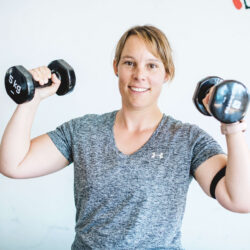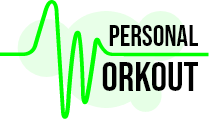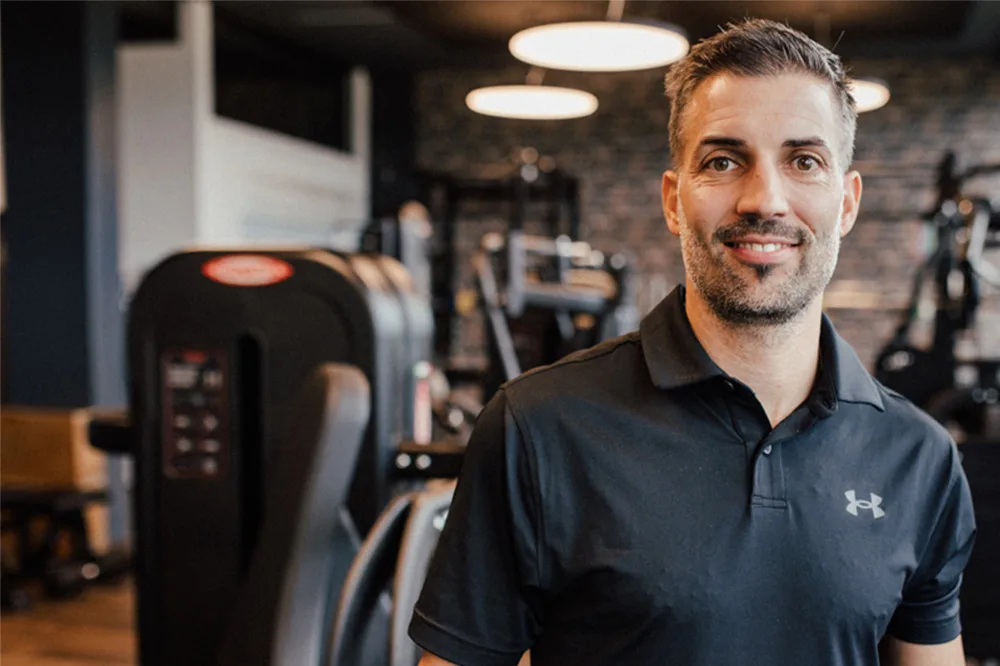The 10 Most Common Nutrition Misconceptions We Encounter at Personalworkout
Sometimes half-truths and untruths persist for years and decades, regardless of the subject. Whether passed down from generation to generation or spread by would-be experts on some platform, many things are simply not true. In this blog post, I will address some of the most common nutrition misconceptions in hopes of dispelling them from the minds of personal training enthusiasts.
Nutrition Myth 1: Fat is bad
Years ago, fat in food was used as a scapegoat for arteriosclerosis and increasing obesity in the population. What a shame. Because fats, especially the demonized cholesterol, are essential for survival. It is needed not only for the cell membrane, but also for the production of all steroid hormones (see illustration). As a result, light products were developed and then enriched with sugar to make them taste good. Years later, people realized they had made a mistake and simply demonized carbohydrates. More on this in a moment.
If you look more closely at the subject, you quickly learn that cholesterol in food and cholesterol in the blood are completely different things, and have only a limited relationship, let alone that the former leads to more heart disease (note: a similar mistake has been made with iron measurements).

Myth 2: Animal fat is bad
Which brings us to the next topic. Fatty non-animal foods are said to be healthy, but things like bacon, eggs, and dairy products are not. This is then used to justify veganism. This statement couldn’t be more false. Veganism is a great thing for animal welfare and sometimes for the environment. From a health point of view, this diet is problematic. More on that in another article (see below). If the arguments from “The Game Changers” are on the tip of your tongue: of course it’s better to replace fried things and hormone-treated meat with vegetables. But that’s not the point. It’s about eating a diet with a complete nutrient and vitamin profile. But back to the point: animal fat is not a bad thing. As always, it’s all about moderation. Animal products also contain many other valuable substances, such as vitamins A and B12 or zinc. Trans fats, on the other hand, should be avoided at all costs.
- https://www.aerzteblatt.de/archiv/217927/Ernaehrung-Gesaettigte-Fette-nicht-verteufeln
- Personalworkout blog post: 6 reasons why veganism is problematic for your health (GERMAN)
Myth 3: Carbohydrates are unnecessary and fattening
Once fats were rehabilitated, the next scapegoat had to be found: carbohydrates. So now everything was “low carb” and this form of nutrition was the way to happiness. Unfortunately, once again, people forgot that for some reason, nature “created” three macronutrients. Carbohydrates provide the brain with energy in the form of glucose and help keep the liver and muscle stores full so that we can train better, for example. They also help the amino acid tryptophan cross the blood-brain barrier via insulin and produce serotonin and melatonin. In this way, they often help us sleep better. This is just one of the benefits of carbohydrates. In addition, several studies show that a lower carbohydrate content for the same number of calories does not lead to better weight loss results.
- https://www.dfb-akademie.de/schlaf-und-ernaehrung/-/id-11009153
- Personalworkout blog post: Low carb diet the key to losing weight (GERMAN)
Myth 4: Fruit has fructose, cereals have gluten, and potatoes are Solanaceae.
You could go even further and demonize the “remaining” carbohydrates. The solution would then be “no carb”. Even if the above statement is correct and fructose is indeed a major problem, it is certainly not the natural fructose from fruit that leads to overweight and obesity. There are some people who do not tolerate fructose well and experience gas and bloating. For the vast majority, however, fruit is healthy and can be eaten with peace of mind. The same goes for foods containing gluten. It is known that some people are sensitive or allergic to gluten, that it damages the intestinal villi, and that even “healthy” people can benefit from a gluten-reduced diet. However, very few people need to avoid gluten altogether.
Finally, solanaceous plants such as potatoes contain alkaloids, which can cause problems in some people. People with autoimmune diseases may benefit from avoiding them. However, this does not mean that everyone needs to avoid these products. Humans have had enough time to adapt evolutionarily to such substances.
- https://www.nature.com/articles/s41467-018-07019-x#Sec8
- https://www.healthline.com/nutrition/nightshade-vegetables#elimination
- Personalworkout blog post: Pros and cons of a sugar-free diet
Myth 5: Meat leads to cancer and milk to lactose intolerance
You know what’s coming. There is one more macronutrient that is not recommended. Protein! So: meat, especially red meat, leads to cancer and dairy products should also be avoided due to allergies. So again, being vegan is best. At least I can still eat soy and legumes as a source of protein. But wait, aren’t the former genetically modified and don’t they both contain unwanted saponins? Oh yes, soy also contains phytoestrogens and legumes contain toxic lectins. So it’s best not to eat any more protein. But please always take your iron tablets, because your iron levels go down due to not eating red meat. The world has gone crazy.
It is true that processed meat products such as salami are problematic and should be avoided. Is that so surprising? But that doesn’t mean a fillet of grass-fed organic beef is unhealthy! Dairy products aren’t unhealthy either, as long as they don’t give you problems. In fact, they do. But a lot of genetic and socio-cultural factors play an important role.
- https://www.cancerresearchuk.org/about-cancer/causes-of-cancer/diet-and-cancer/does-eating-processed-and-red-meat-cause-cancer
- https://www.5amtag.ch/wissen/sekundaere-pflanzenstoffe/saponine/
- Personalworkout blog post: 6 reasons why veganism is problematic for your health (GERMAN)
Myth 6: Proteins raise creatine and damage the kidneys
I’ve heard it from my doctor: you have elevated creatinine levels. Do you take protein shakes? When I said “yes”, I was told that I should avoid them because my levels could damage my kidneys. Again, this statement needs to be questioned very critically and you should take a closer look at the person in front of you. Does this person have above average muscle mass? Do they exercise regularly, causing more muscle damage than the average person? If so, then it is clear why the recommended values for such a person are not adequate or a snapshot that is not meaningful.
Creatinine is a waste product and increases as “damaged” muscle is repaired. The more muscle mass there is, the higher it will be. In addition, creatine supplementation and dehydration lead to higher levels!
Uric acid, which is tested as a standard, is also increased with higher protein consumption. This does not lead to kidney damage, nor should it lead to a “low protein” diet.
Myth 7: Diets are more effective for fat loss
Intermittent fasting, metabolic typing or balance, juice diets or blood group diets: all diets that are supposed to be the holy grail for fat loss. All nonsense. There is very little scientific data for most diets, and where there is, it is very controversial. That doesn’t mean they don’t work. What they all have in common is that they reduce calories. And that is one of two ways to lose weight. The other is obvious: increase your intake. But they also have one thing in common: they are impractical in the long run, even motivation killers, and often lead to the well-known yo-yo effect. The strict rules may help in the beginning, but they are rarely feasible in the long run.
Myth 8: Dinner makes you fat
Dieser Irrtum ist sehr schnell aus der Welt geschaffen. Absoluter Unsinn. Mathematisch wie wissenschaftlich nicht haltbar. Das Einzige, was für eine Zu- oder Abnahme entscheidend ist, ist die Gesamtkalorienzahl. Wenn ein üppiges Abendessen oder ein Raclette oder Fondue deinen Schlaf beeinträchtigt, dann macht es Sinn, dieses anzupassen. Ansonsten iss, wann es dir behagt bzw. wenn du Hunger hast.
Myth 9: Fresh vegetables contain more vitamins than frozen ones
Wrong. Due to long transportation routes, storage in the supermarket, and storage in your refrigerator, fresh fruits and vegetables almost always have fewer vitamins than frozen fruits and vegetables.
Myth 10: I can hardly eat any more
More false than almost any other statement. You can eat ANYTHING. But it’s the amount that counts! Eat a balanced diet with as many varieties and as little processed food as possible. Pay attention to transport routes and cultivation and find a healthy approach to your diet. If you asked all of our customers, the vast majority would tell you that they have never been able to eat as much as they do with us and still lose weight. I know that sounds like good marketing, and like one of those statements you have heard from one of your diets (that turned out to be wrong). But with us, there are no diets, and we don’t just work on your diet. That’s the difference.
CONCLUSION
Much of what you hear and read is wrong and is based on sales pitches or ignorance. This leads to people choosing the wrong strategies for their goals and being disappointed because these measures cannot be applied in the long term. They lead to muscle loss and the yo-yo effect or cause discomfort. They can lead to hormonal imbalances, sleep problems and lack of energy. You are constantly struggling with cravings, unbalanced, dissatisfied and disappointed in yourself for making too many exceptions.
I could say: Personalworkout is the solution—or simply: eat like we did a few decades ago and exercise like we did then. You’ll reach your goals on your own!
Our free nutrition guide (GERMAN) has more valuable information for you. And our Kitchen Workout cookbook (GERMAN) is full of delicious, healthy recipes you can make at home.
Challenge of the Month
What Clients Say





















